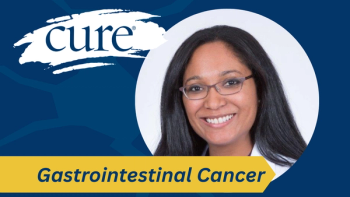
From Survivor to Caregiver
When Joanne Lam was diagnosed with bladder cancer, her husband showed unwavering devotion in caring for her. Now it's her turn to be his caregiver.
Several years ago, the call came in from the physician’s assistant.
“We are finding cancer cells. Can you come in for more testing?”
And so my journey with bladder cancer began. It quickly becomes a process of testing, diagnosis, procedures, medications and in many cases, surgery. In my situation, the aggressive cancer of the bladder required its removal and a radical cystectomy. There was a healing period of several months which included living with an external pouch, otherwise known as a urostomy. I was, however, extremely grateful for the success of the surgery and recovery. I have been “cancer-free” for seven years.
My primary caregiver was my husband, Greg, who was truly my right-hand man. I’d often call him “My Prince”. Every trip to the doctor, every overnight stay for various procedures or surgeries and every need at home, large or small, was taken care of by Greg without complaint or question. I feel that my attitude and success through bladder cancer were in a large part due to his caring support and unwavering love.
Fast forward to approximately one year ago: Greg felt pain on his left side which radiated to the front and back. Our first thought was that we were dealing with shingles, as the pain was uncomfortable and intense. His symptoms seemed classic, except there was no external outbreak. We thought we would just ride it out and see the doctor if his pain should worsen.
Greg’s pain continued to increase, and so the process began. We began seeing specialists. Multiple tests and biopsies led to the final diagnosis of a rare type of sarcoma. This steered our journey in the direction of intense chemotherapy. As the cancer was aggressive, so was the treatment. He was and continues to be admitted into the hospital for a period of four to six days at a time to be administered the chemo.
The oncologist tells us that soon the treatment will change, as Greg has reached the tolerance level for these particular drugs. Early on, we sought a second opinion. Both doctors have conferred along the way and discussed future options. We will soon hear about those options and continue traveling in the best direction.
As caregiver, I am much more attuned to his every need. I try not to impede the things he can and wants to do on his own. It’s always hard to know how much activity is enough or too much and when I should offer help or suggestions. Most of the time, Greg is content to kick back in his family room recliner and watch TV. However, we live in a rural area. When Greg is at his best and wants to work outside, we will bring in wood for the fireplace, plow snow out of the driveway or perhaps he’ll even tinker around in the garage.
Greg has responded well to daily medicines and his monthly stays in the hospital. Once he gets home, it takes approximately two weeks for his immune system to balance out. We are then able to visit grandkids, see family and attend church functions. We design our days so that they are not too exhausting but still allow us to make memories. Our pace is slower, our days quieter and our words kinder. When “My Prince” is napping, I tip-toe by to make sure all is well. Finally, I catch up on chores or read until I drift off to sleep as well. Perhaps we will meet in our dreams, happy and carefree.




